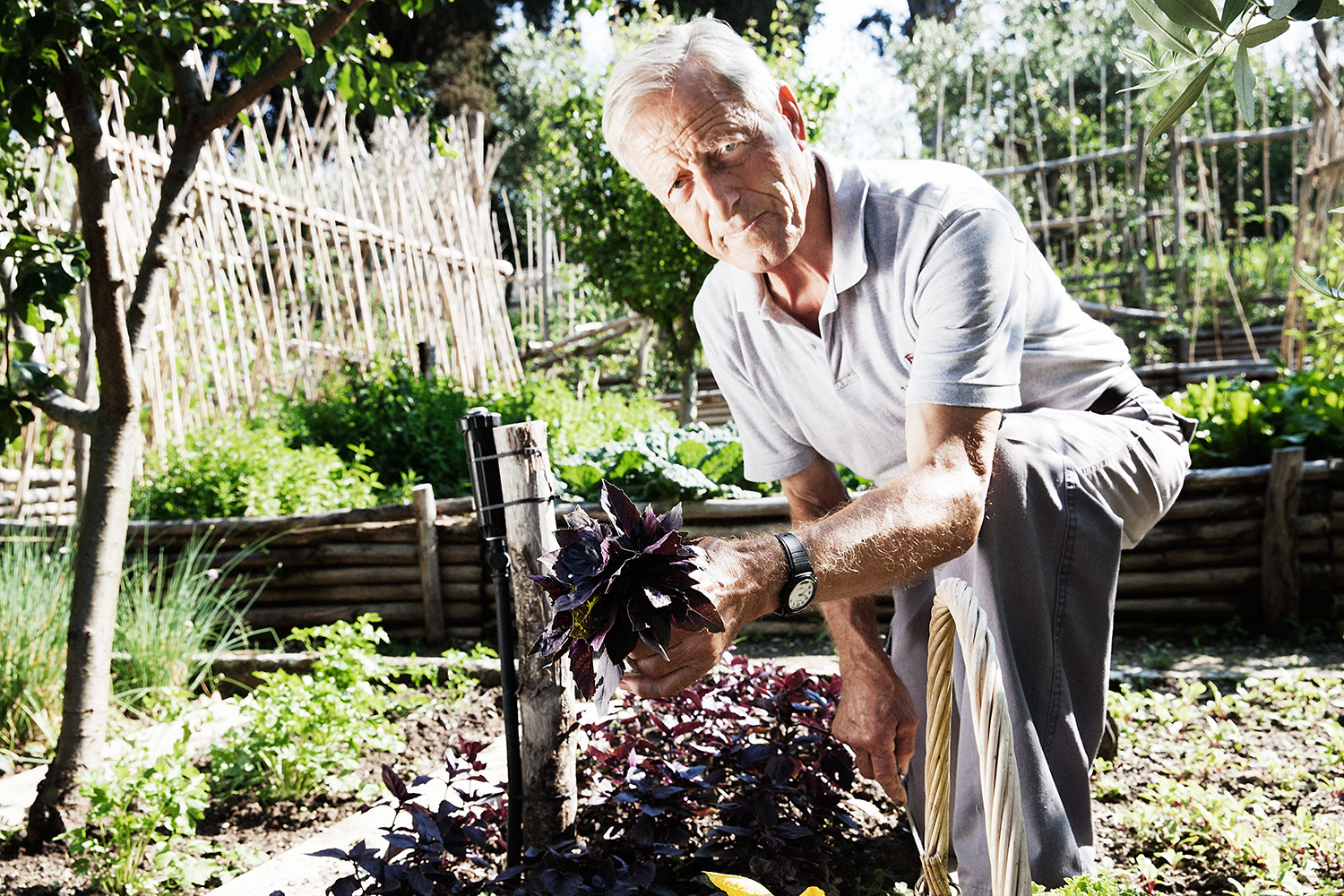On the occasion of La Festa della Liberazione (Freedom Day) and Il Primo Maggio (Workers Day), we thought it apt to interview Guido, employee with the longest and most diverse career at Vignamaggio. Guido is 80 years old and his family has worked here for generations. His memories are not merely of occasions and of the people who filled Vignamaggio, they narrate a century of events and changes in history. During a chat with Guido, one is assured of a special story, alive with imagery and rich detail.
«Guido, when did you first celebrate “Il Primo Maggio”?» I never celebrated Il Primo Maggio when I was a sharecropper or a waiter. Things only changed later on. Workers in the cities began to celebrate Il Primo Maggio after the war, but sharecroppers and ourselves, serving in the Villa, worked every day. In the past, especially on weekends, the Villa hosted very beautiful receptions and parties. We worked on Christmas, on New Year, all the time. There was a lot of grandeur, the aristocratic families hosted dinners and lunches with dozens of guests. Everything was served on silver platters with silver cutlery, which I had to polish! (laughs)

«Tell us about a typical day in your father’s life, working as a sharecropper, or about how you, as a teenager, would help him after school. »
We were responsible for the livestock: the bulls and milking cows. In summer, we needed to get up at 3 or 4 in the morning to feed them. I went to school in the mornings, while my father and the other sharecroppers worked until 11am. They started again at 4 and finished at about 8. We had dinner at 9. The farmer and his assistant, the woman farmer’s husband, assigned us our duties. The woman farmer was in charge of the hen house and the furnace, which produced bread every day.
« La Festa della Liberazione was a few days ago. Would you like to tell us about something that reminds you of those times »
I remember that, during fascism, the women were forced to hand over all their jewellery, even their wedding bands, as a tribute to the war. Even the gate at Vignamaggio was melted down. Anyone who refused would be reported and then killed. Even my mother once risked being reported by the farmer when she said “Damn the fascists”. Both she and my father had lost two brothers to the war. I remember that a group of fascists from Greve wanted to arrest Bino, the count, because he had never joined the party. He hid in the Pratone, the lawn area behind the holm oaks. Bino and the princess managed to escape to her brother in Uzzano and took refuge there. Then they found shelter in Florence until the end of the war. During this period German soldiers occupied the area, until the English and allied troops arrived. Eventually the Sanminiatelli counts returned.
« You have worked at Vignamaggio as a farm labourer, a waiter, an assistant cook, a butler, a driver, a cellar man, a waiter again and now as a general gardener. Tell us about these jobs and about the one you liked most.»
Gardening is the work I like most. I worked as a farm labourer until I was 16 years old and it was hard work. Working as a waiter or butler though meant I lived in the villa and I worked closely with the owners. If there was a pan missing or the owners needed something, we were here for them, we lived here. In the kitchen garden there were no vegetables, no plants other than flowers, dahlias, gladioli and roses, which decorated every room of the villa. There were always guests and friends drinking tea on the lawn, under the lime trees, or magnificent dinners being organised. We often worked for other families too, so at Christmas and New Year I had to assist in Uzzano; festivities were a tradition on the estates of the most prominent families. We saw famous people pass through here, I saw Prince Charles from England and Queen Elisabeth with her colourful little hats.
« Do you miss those lavish times, do you feel nostalgic? »
No, I’m better off now.
« Many of your peers have stopped working. Have you ever thought about retiring? »
Many people have asked me this, but I think working is good for me. If I stopped spending time outdoors, working, and stayed at home all day, I would have too much time to think. And I believe that too much thinking may be the cause all sorts of troubles. Every now and then, I remember that eventually I will have to stop working to allow a youngster take my place.
«Seeing that tomorrow is a holiday, tell us about how you spend holidays now and how you did in the past. »
As the years go by I have less time to socialise, but when I was young, on winter Sundays, we would get together at Casolese. The women would roast chestnuts while someone from town would come and play the accordion and the old men played a card game called Tresette. We danced and sang all evening. Otherwise, there was a place in Lamole where we did ball room dancing. We walked there. It took us an hour but there was a group us and so time flew.
Our short interview ends here, with happy memories, of celebration.
Thank you Guido and a happy Primo Maggio to everyone.


